Writing a paper is not as easy as it may seem at first.
There are a ton of things to keep in mind when you’re working on an assignment—from conducting good research and building a well-thought-through structure to properly formatting the paper and making sure it fits all the guidelines. Challenges can still arise, and plagiarism is one of the biggest concerns.
So, how to avoid plagiarism as a student? Today, we’re going to address this question.
Avoiding plagiarism proves that you’ve spent enough time doing research, finding primary sources, and citing and referencing all of them. These tasks may seem overwhelming at first, and that’s the reason why we’re writing all this.
In this guide, you’ll find 10 ways to avoid plagiarism for students, plus 2 additional strategies to help you ensure your text is fully original. Check these tips out, and you won’t ever have to worry about whether or not your work contains plagiarized materials.
❓ What is plagiarism?
Let’s get the most obvious thing out of the way first: the definition of plagiarism.
It’s not that hard, and we’ve practically already named its main concept. Plagiarism is when you take someone else’s work and present it as your own.
In the world of academic writing, it’s considered dishonest. Plagiarism breaches numerous standards of ethics, and it’s subject to various penalties.
So why do students plagiarize in the first place?
Some may plagiarize other people’s works without even knowing it. This can be caused by lack of experience. Another reason for plagiarizing is spending too little time on research (which we’ll discuss later on in the post).
Still others plagiarize on purpose, clearly knowing what they’re doing. They think that it’s the easiest way to deal with an assignment and that nobody will ever notice.
Either way, if your work is filled with plagiarism—it’s bad news for you. It means that you were trying to present someone else’s thoughts, findings, and ideas as your own.
Though it’s not a crime, plagiarism can still lead to charges of copyright infringement in some cases.
The issue of plagiarism goes far beyond academic writing and can be seen in many other spheres of daily life: journalism, music, art, literature, and even more.
📋 Types of plagiarism
In academic writing alone, there are multiple types of plagiarism.
Let’s have a look at a couple of them:
- Paraphrasing. Even though we’re going to list this as a way to avoid plagiarism, it’s also possible to actually cause it while using this technique. It’s all about doing it right. And just one tiny component added to paraphrasing can help you keep from plagiarizing material. Keep reading to find out how to paraphrase right.
- Self-plagiarism. It might not seem wrong to reuse works that you’ve written in the past—but it actually is. The problem is that this work has already been evaluated. So, unless you acknowledge that you’re using your own previous findings, it will be classified as plagiarism.
- Piling up sources. Usually, this one is more of an unintentional case of plagiarism. The main characteristic of it is that the work only contains source materials. They may be properly cited, but if there’s no original thoughts or ideas from the author of the paper—it’s still plagiarism.
- Direct copying. This is the most obvious one. And the name explains it all. It’s using another person’s work completely unaltered and without referencing the source.
🔀 10 Ways to avoid plagiarism
Finally, we’ve reached the most interesting part.
Below, you’ll find tips and techniques that will show you how to avoid plagiarism. Follow these guidelines and you won’t ever have to think about it again!
1. Use paraphrasing
This method is the perfect solution when you know you have to cite the original source but can’t find it anywhere.
Interpret the main idea in your own words, without writing more than two words in a row verbatim.
Always double-check to make sure that you didn’t mess this one up.
But wait—more still needs to be said about paraphrasing.
You can’t just rewrite someone else’s thoughts and present them as your own. This isn’t how you avoid plagiarism. Even when you’re paraphrasing, you need to attribute ideas to their original authors.
Just start the sentence by referencing the author and then continue sharing the thoughts or ideas.
2. Quote sources
When quoting, you need to make sure that the quote is written exactly as it appears in the primary source. And, of course, there have to be quotation marks. To make sure you’ve acknowledged the author of the extract, add a citation in brackets right after the quote you’re using. At the very least, take notes and remember to organize a reference list later.
You also have to keep in mind the length of the quote. Quotes longer than 40 words, or “block quotes,” are typically no good. Think about the percentage of quotes in a research paper, too. Having too many quotes in your work isn’t recommended either, as it makes the readers question your level of expertise.
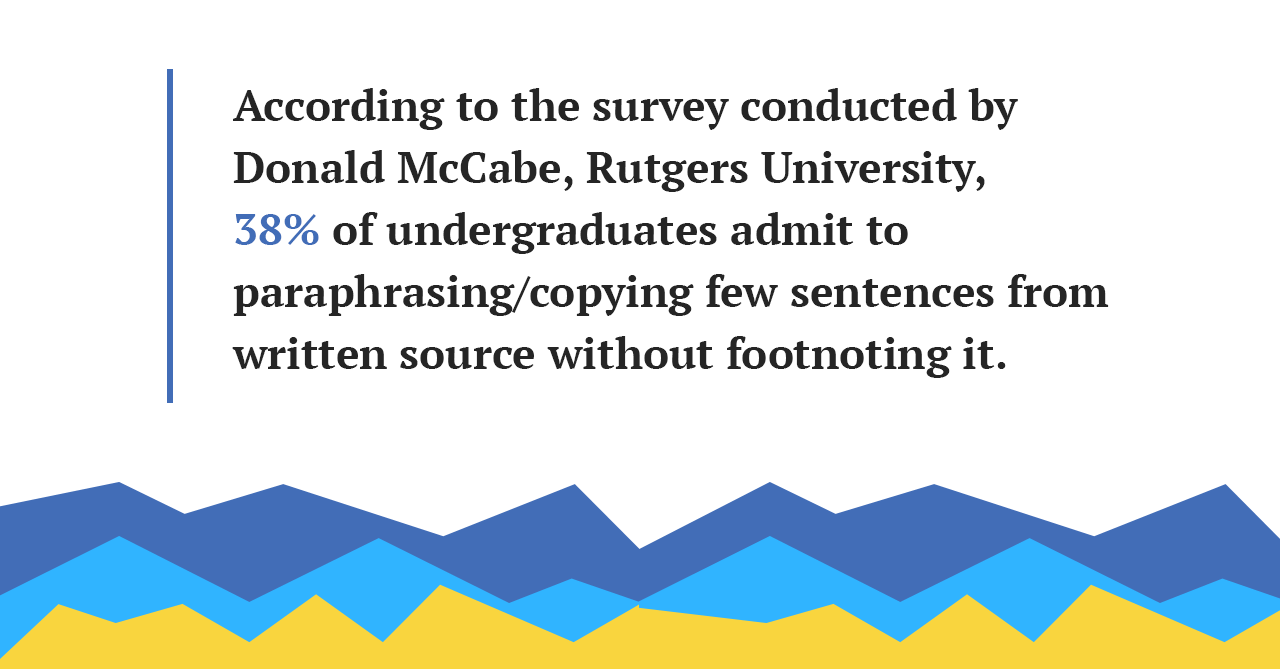
3. Cite materials
This is one of the most effective ways to avoid plagiarism. This is because a proper citation contains all the necessary information about the original work and its author.
To be able to cite the materials correctly, you need to be aware of the guidelines for the citation style your institution is using (MLA, APA, Chicago, etc.).
If you’re using previous materials of your own, you can cite them too. Just make sure not to recycle them completely, because that would be considered self-plagiarism, as we mentioned earlier.
4. Add references
A reference list contains all the works that you’ve cited in your paper.
A list of references also has a specific format, so you need to make sure that you’re using the proper style guidelines. Because the list includes very specific information, it’s important to make sure every detail is correct. The information in the reference list includes the author’s name, date of publication, title, and source. The exact order of those items and the presence of additional details are determined by the particular citation style you’re using (as mentioned above). For clearer understanding, visit IvyPanda essays section. The absolute majority of samples there have reference lists, written in a variety of citation styles.
5. Get invested in your topic
One of the most common reasons why students plagiarize works is that they aren’t interested enough in the topic they’re writing about.
As a result, they don’t conduct enough research or put enough effort into finding original sources. It all ends up in a paper full of plagiarism.
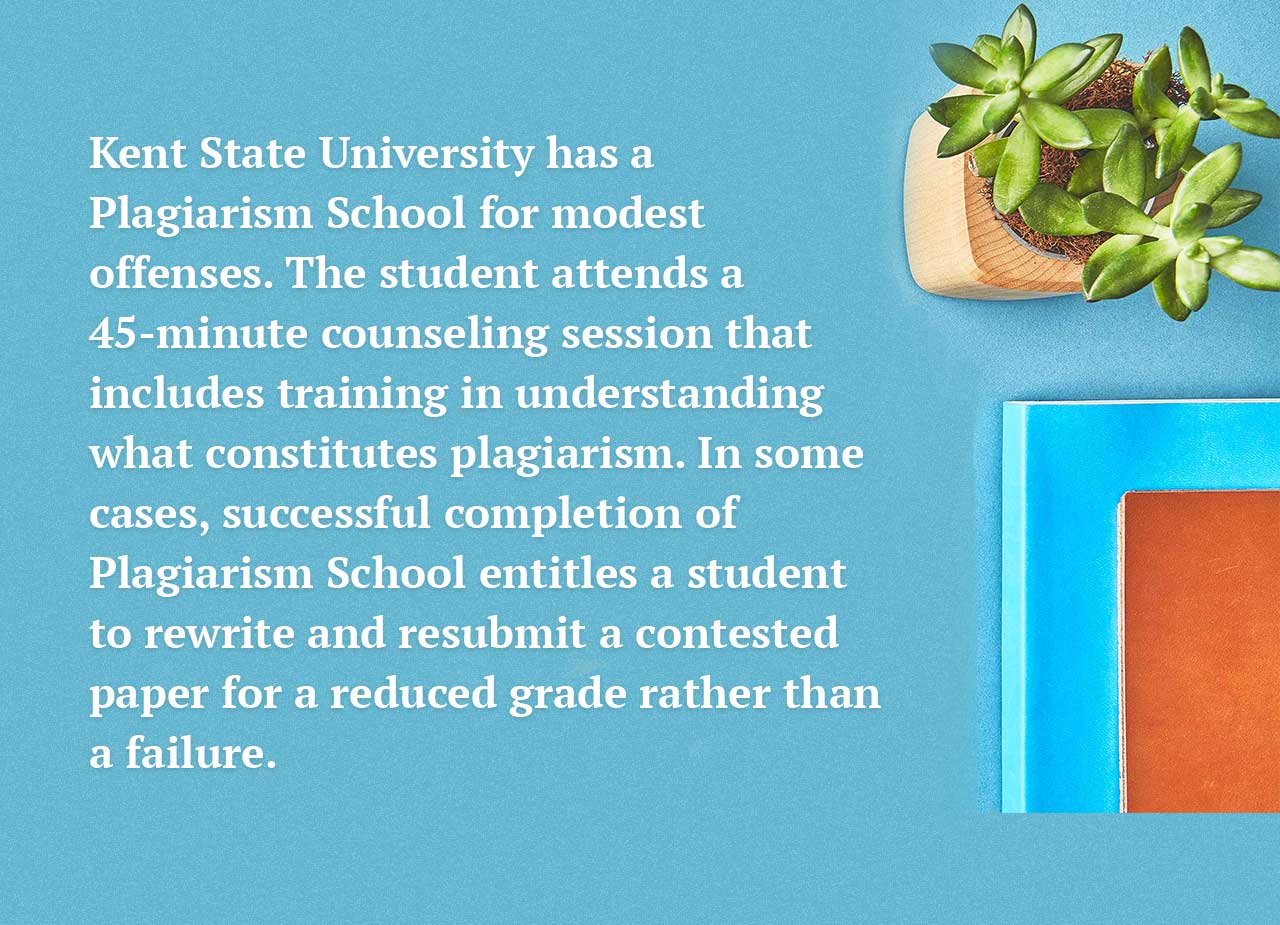
If the topic you have to write about isn’t interesting enough, try to find at least some aspects that capture your attention. This way, you’ll pay more attention while conducting research and gathering resources, both of which will improve the overall quality of your work.
6. Know what not to cite
It sure is better to “overcite” than “undercite.”
But…
To know when to cite sources, you also need to understand what does not need to be cited. You don’t have to cite information that is common knowledge or facts about well-known events. Personal experiences and urban legends also belong to that category.
There is, however, one thing to remember, and that’s copyright. While common knowledge or facts themselves can’t be copyrighted, original or unique wordings can. So, even if you’ve found well-known facts, make sure to take extra precautions and interpret them in your own words.
7. Plan your work well before starting to write
When you have a well-designed and thought-through plan of your future work, you’ll be able to balance everything out much better.
You’ll be able to see how many of your own thoughts are going to be in your paper and how much you’re planning to cite from other authors.
A plan will also show whether or not you’ve found all the original sources you’ll need for your work.
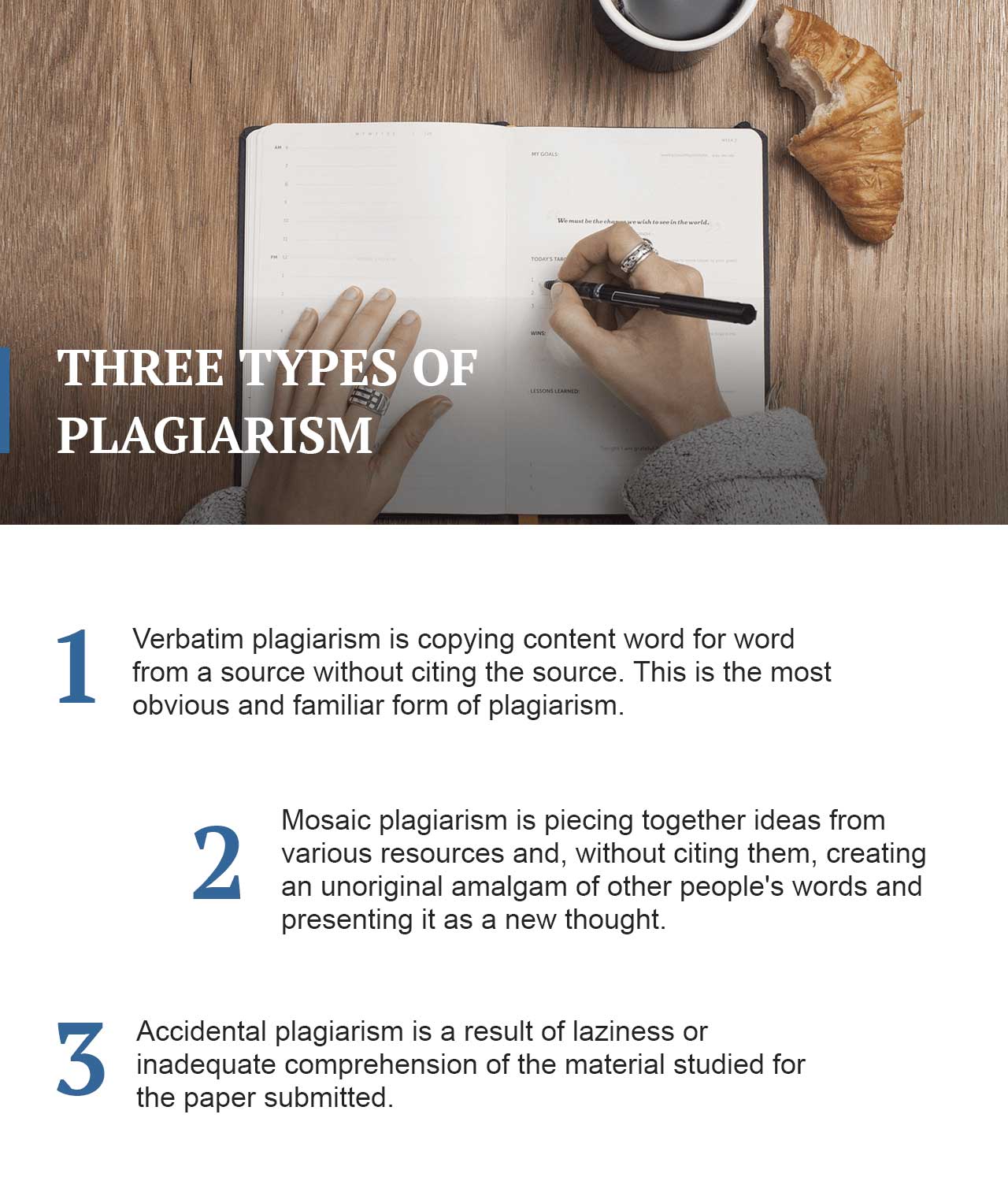
8. Use a plagiarism checker
This is probably one of the most obvious techniques to avoid plagiarism.
There’s plenty of software out there if you’re looking for a reliable plagiarism check. These resources are available as an application or in the form of website. There are also several free and paid versions. So it’s up to you to decide which one to use.
However, you still need to check the work yourself, too. You can’t fully rely on a plagiarism checker alone. After all, double-checking a paper never hurt anyone!
9. Write your bibliography
Remember how we mentioned taking notes when referencing your resources?
You’ll need those notes to build your bibliography. And the sooner you start writing it, the better. Actually, when you’re just beginning to gather materials for your paper—it’s already a good time to start.
Taking notes as you go will be greatly beneficial to your paper’s quality. You’ll be able to see what source materials are missing and what else still has to be found. It will also help verify that you have a complete bibliography, with all the sources you’ve cited listed properly.
If you decide not to use some of your source materials during the revision, you can always remove the sources from your list.
10. Don’t forget about online resources
By this time, this tip has to be obvious—but it still gets forgotten sometimes. Internet sources need to be cited, too.
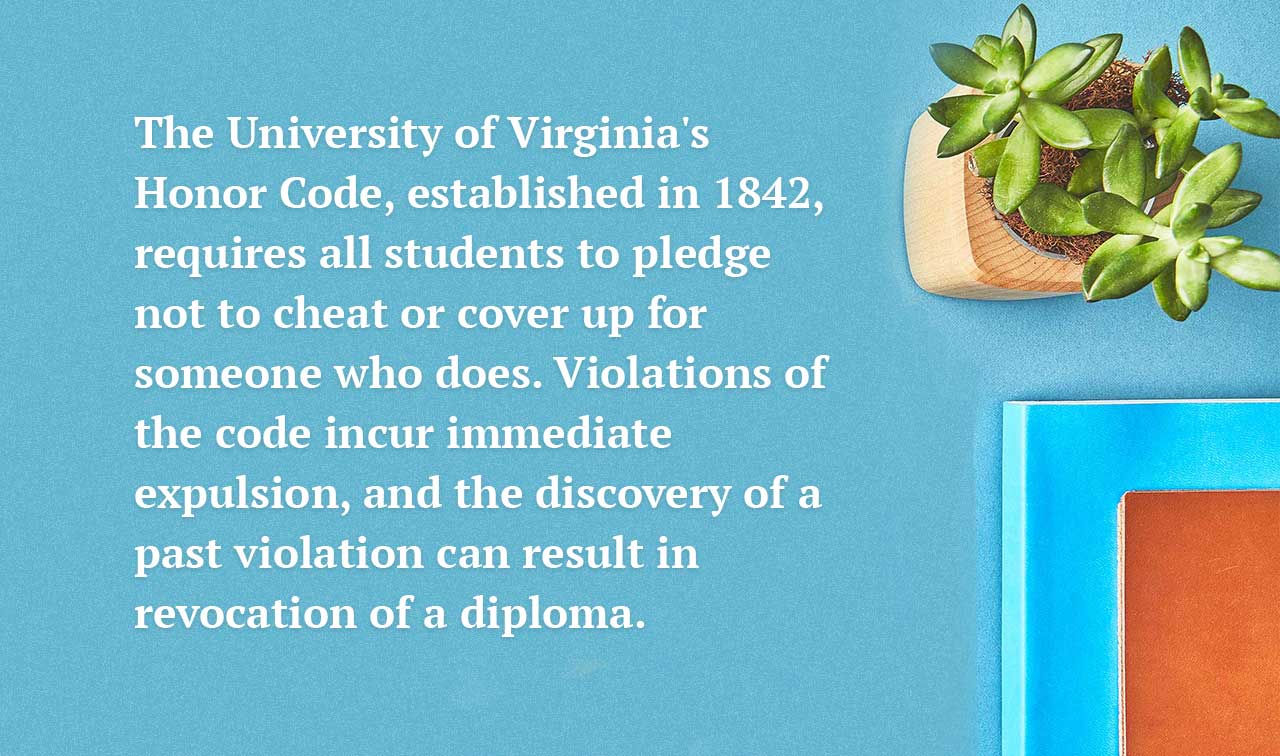
In fact, online resources typically have even more specific citation requirements compared to regular print materials. In particular, most citation styles require you to mention the date that you retrieved the material. This is because online articles are updated from time to time, and the authors may have rephrased or even removed the information you’re referencing.
Also, before adding a citation, you need to make sure that the resource you’re referencing is the original one—not just one on its reference list. Otherwise, keep searching until you’ve found the primary source.
🎁 2 Extra strategies to avoid plagiarism as a student
Evaluate all the sources
Apart from finding the primary source of the information, you also need to evaluate how good that source actually is. This rule of thumb also applies to regular resources, not just online ones.
So, to make sure the resource is worth using in your paper, pay attention to the following:
- How good is the author’s reputation in your field?
- Where did the author take the information from? What connection does he or she have with other organizations?
- When was the original work published? Is it still relevant and up to date?
- How well does the author support his or her own ideas? What’s the overall quality of writing, and how accurate is the provided information?
Considering these questions will help you decide whether the resource you’re about to use is reputable enough.
Including questionable resources in your paper only increases the chances of having plagiarized information.
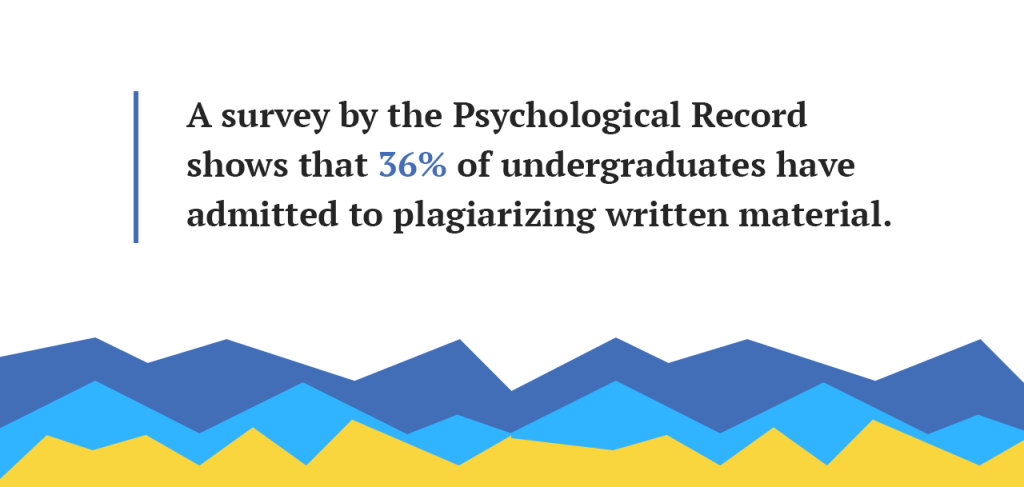
Leave enough time for research
Another common reason for plagiarizing other people’s works is simply a lack of time.
Research is a vital part of the entire writing process. You could even consider it to be a separate task because of its great importance. Having enough time for writing and researching is by far the best way to avoid plagiarism.
Time allows you to gather a great number of relevant resources, instead of using only a couple for your whole work.
One recommended practice is to write bulleted lists as you research, pointing out all the key ideas and findings from various works. Then you should take a break and return after some time. It will give you an opportunity to think about what you’ve done so far.
It will also allow you to spot any flaws or inconsistencies, fill in any possible gaps in your argument, and rephrase some of your statements.
You can do all of this without hurting the quality of your paper and without increasing the chances of including plagiarized material. All you need is more time for research.
When you’re really committed to writing an outstanding paper, dealing with the issue of plagiarism won’t be that hard. Especially if you use some of the tips on how to avoid plagiarism that we’ve given you.
All it really takes to avoid plagiarism is to focus on being as original as possible and sharing your own thoughts. Looking for a shortcut or an easy way out usually only ends up in wasted time and poor writing.
So, to be able to succeed, you just need to have the right mindset. And with the help of our tips, your paper will be flawlessly free of plagiarism.




thanks for the help!! I was working till midnight when I found this website, thank you so much
Glad you liked it! Thank you for your feedback!
Is it possible to reference your article only when writing an assignment?
Yes. This is a perfect article to refer to and cite when writing an assignment on plagiarism.